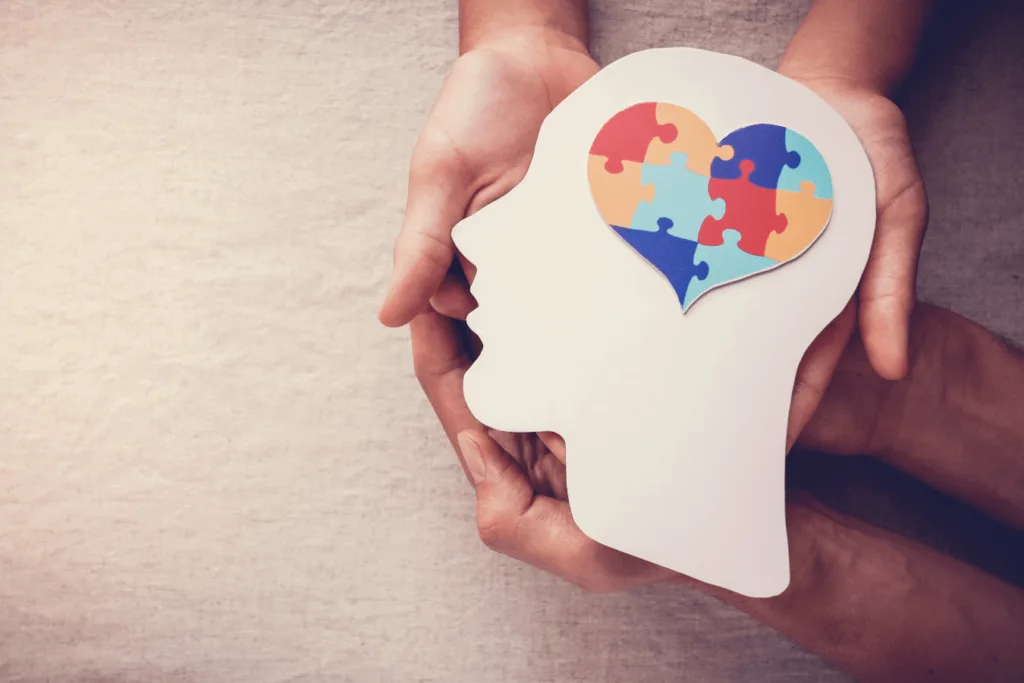50 Most Mind-Bending Philosophical Questions Ever Asked
Philosophical questions
Philosophical questions invite us to think deeply about life, truth, and meaning. They ask why we exist, how we know what is real, and what is right or wrong. These questions have no easy answers, but they help sharpen thinking, encourage curiosity, and guide personal growth.

The word “philosophy” evokes images of academic discussions about the nature of reality. The field of philosophy is not limited to nerds. Everyone has at some point struggled with philosophical issues, whether we realize it or not.
Philosophy can be seen in real life when you question the purpose or when you stare up at the stars at night and wonder if we are the only ones in the world.
What is a philosophical question?
Questions that explore basic characteristics of existence, such as knowledge, values, and reason, are regarded as philosophical. They also examine the intellect, language, and other mental processes. These are challenging topics that usually spark discussion and introspection.
The question, “What’s the meaning of living?” may cross your mind. “What is the meaning of life?” and “Do we possess free will?” are some questions you may have. These philosophical questions inspire you to critically consider the nature of reality and our role in it.
The Nature of Reality in Philosophical Discussions
What is Real?
One of the most fundamental philosophical questions, raised from ancient Greece to the present day by thinkers like René Descartes, is: “I am what I think.” Descartes questioned everything, including his senses, but concluded that every thought he had was evidence of his existence.
Modern skepticism and the study of epistemology are products of this way of thinking. At first glance, reality seems simple because it is the world we see, touch, and live in daily, but upon closer inspection, things become more complex.
Are We Living in a Simulation?
Intriguing and unsettling, the question “Are you living in a simulation?” has been raised in recent years. The hypothesis proposed by the philosopher Nick Bostrom. It suggests that we might be living in a highly sophisticated civilization capable of creating complex simulations.
Assume that if technology developed further, it would be possible to create a simulation of the real world. The. The simulation theory raises essential issues similar to those in the real world. How could we identify whether we were in relation?
Important philosophical questions about our existence and place in the cosmos are raised by the simulation theory. The question is a valid philosophical one that challenges our ability to be creative and to understand reality.
The Quest for Knowledge
What Can We Know?
In epistemology, knowledge is studied. Questions like “What are we capable of knowing?” are among those it asks. “What can we know?” is one of our understandings, together with “How to know what we already know?” Because these philosophical questions help in our understanding of the world.
In epistemology, the argument between rationalism and empiricism is fundamental. Descartes and other rationalists argued that the primary sources of knowledge are logical thinking, reasoning, and reason. However, empiricists hold that knowledge comes from sensory experience. John Locke, a well-known empiricist at the time, held that all knowledge is gained via experience and that the mind is initially empty.
The argument continues to impact science and philosophy today. How can the validity of scientific theories be established? Do deeper truths about our universe come to light, or do they reflect the best explanations available to us based on actual evidence? These philosophical questions suggest that knowledge is more than just collecting facts.
Do We Really Have Free Will?
Do we have free will? This is another old question about the nature of our being. This investigation addresses psychology, ethics, and neurology. If our choices are affected by neurological, genetic, or environmental factors, can we still say that we have free will?
Determinists believe that everything happens according to natural laws, including human conduct, and that past events have an impact on the present. Libertarian philosophers argue that people have free will and that our choices are not predetermined. The theory of compatibilism holds that free will and predeterminism can coexist.
Modern neuroscience has brought a new perspective to the conversation. Research indicates that our brains form opinions even before we are aware of them. Does the continuous false belief in oremainsom? The complexity of human nature is highlighted by the fact that the debate is still going on and the decision is still pending.
The Ethics of Living in Philosophical Discussions
What is the Good Life?
Philosophers from Aristotle to the present have argued about what it means to live well. Aristotle, for example, believed that a happy life was one in which individuals lived up to their virtues and contributed to society. Eudaimonia is the state of being morally upright and logical.
A decent life, according to utilitarian philosophers like John Stuart Mill and Jeremy Bentham, maximizes pleasure and reduces pain for as many people as possible. According to the consequentialist perspective, morality is judged by the outcomes of actions rather than by inherent qualities. A good living is still a relevant topic in a society with diverse lives and ideas. How can social responsibility and enjoyment coexist? Is the good life a universal or subjective concept?
What is Justice?
The issue of justice is vital for philosophical debates as well. What does justice mean? This question has significant societal implications and is not just theoretical. The definition of kingship is a continuous process. From classical philosophers like Plato, who imagined a society governed by philosopher kings, to contemporary intellectuals like John Rawls, who popularized the idea of justice as fairness.
For example, Rawls uses the “original position” or “veil of ignorance thought experiment to examine fairness. According to him, we could create a just society regardless of concerns and ethnicity. We would choose values that promote equality and justice.
The Profound of Life According to Philosophical Discussions
Why Are We Here?
The philosophical topic of “why are we here?” is serious and personal. This question deals with religion, purpose, and existentialism. Responses from earlier cultures and ideologies have been numerous. Usually, religion uses a cosmic order or divine purpose to explain meaning. Christians hold that serving God and obeying His commands is the ultimate purpose of existence. Buddhism views life as a means of achieving enlightenment and escaping from reincarnation and misery.
The existentialists Jean-Paul Sartre and Albert Camus hold that everyone must discover their own meaning in life. According to the well-known Sartre quotation, “Existence precedes essence,” we exist before determining who we are by our deeds and decisions. Searching for meaning is personal. Some look to their faith or service for meaning, while others look to their relationships, occupations, or artistic efforts. The question of why we are here forces us to reflect on our principles, goals, and impact on the world.
Is There Life After Death?
Finally, we ask the age-old query, “Is there life after death?” To find out what exists beyond death, metaphysics and religion are studied. Religious and cultural responses differ. Religions that believe in heaven, hell, resurrection, or spiritual emancipation. An afterlife question raises philosophical questions about Hinduism. Some of these ideas impact morality and comfort before death.
Philosophical questions related to the soul, consciousness, and identity are raised by an afterlife philosophical question. Can consciousness endure anatomical death? What shape might it take? Dualists and other philosophers hold that the body ceases to function separately, implying a hereafter. According to materialists, consciousness is a neurological function that stops working when the brain dies.
The question of what happens after death is among the most important and disturbing ones. It pushes us to find meaning and purpose in life by confronting our mortality and fleeting existence.
Simple Philosophical Discussion Starters
- Do you believe in fate, or do we create our destiny?
- What is the meaning of life, and how do we find it?
- Is it possible to achieve true happiness, or is it always fleeting?
- Can we ever truly know another person?
- What does it mean to live a good life?
- Do humans have a natural tendency towards good or evil?
- Is there such a thing as objective reality, or is everything subjective?
- Can morality exist without religion?
- What are the implications of artificial intelligence on our understanding of consciousness?
- Is there a universal right and wrong, or is morality relative?
- What role does suffering play in our lives?
- Are humans inherently social creatures, or is solitude equally important?
- What is the nature of beauty, and why do we find certain things beautiful?
- Do we have free will, or do factors beyond our control predetermine our actions?
- What is the relationship between mind and body?
- Can money buy happiness, or is it merely a tool for achieving other goals?
- How do we determine what is true?
- Is it better to pursue knowledge or to remain content with what we know?
- What is the role of art in society?
- Is it more important to be honest or to be kind?

Top Philosophical Questions To Inspire Critical Thinking
Some Classic philosophical questions to discuss:
Metaphysics and Reality
- What is the nature of reality?
- Do we genuinely have free will, or are our actions predetermined?
- Is there a reality beyond our perception?
- Can something exist without being perceived?
- What is the nature of time? Does it flow, or is it an illusion?
Knowledge and Epistemology
- How do we know what we know?
- Is there a difference between belief and knowledge?
- Can we ever attain actual knowledge, or is everything ultimately uncertain?
- What are the limits of human understanding?
- How do our perceptions shape or distort our understanding of reality?
Ethics and Morality
- Is morality objective, or do culture and personal experience shape it?
- Is it ever justified to break the law for the greater good?
- Do ends justify the means, or are some actions inherently wrong?
- Is it more important to be good or to be happy?
- What obligations do we have to future generations?
Society and Political Philosophical Questions
- What is the best form of government, and why?
- Do individuals have the right to absolute freedom?
- Is it possible to achieve true equality in society?
- What is justice, and how can it be achieved?
- Should wealth be redistributed to achieve social equality?
Existential Philosophical Questions
- What is the purpose of life?
- Is there inherent meaning in life, or do we create it ourselves?
- What does it mean to live authentically?
- How should we confront the reality of death?
- Is human existence fundamentally absurd?
Fun Philosophical Questions
- If you could live in any fictional world, which one would you choose and why?
- Would you rather have the ability to fly or become invisible at will?
- Is it better to have loved and lost than never to have loved at all?
- If you could meet any historical figure, who would it be and what would you ask them?
- If animals could talk, which one would be the most interesting to have a conversation with?
- If you could time-travel, would you visit the past or the future, and why?
- Do you think robots could ever have feelings and emotions?
- Would you choose to know your future if you had the chance?
- Is it possible to have a perfect day? If so, what would it look like for you?
- If you could instantly learn any skill or talent, what would it be?
- Is a hot dog a sandwich? Why or why not?
- If you could only eat one type of food for the rest of your life, what would it be?
- If you had the chance to start your life over, would you do it?
- Would you rather be able to talk to animals or speak every human language fluently?
- Is it better to be a big fish in a small pond or a small fish in a big pond?
Big Philosophical Questions About Love & Relationships
- Is love a choice, a feeling, or a combination of both? What truly defines love?
- Is the desire for love an inherent human need, or is it a cultural construct?
- Are there different types of love (romantic, platonic, familial), or are they all expressions of the same core emotion?
- Can romantic love last a lifetime, or is it inherently fleeting?
- Can love be possessive or destructive? When does love become unhealthy?
- How do we distinguish between being in love and simply feeling infatuation or lust?
- Can we choose to love someone, or is it something beyond our control?
- Does having more love in your life equate to a more fulfilling existence?
- Is the depth or intensity of love more important than the quantity of love received?
- How does unreciprocated love impact us, and how do we move forward?
- Does the experience of love change as we age?
- Does loving someone teach us more about ourselves than about them?
- To what extent should we sacrifice for love? Where do we draw the line?
- Can true love exist despite a person’s flaws?
- Can love exist between different species, or is it a uniquely human experience?
Deep Philosophical Discussions About Death
The Nature of Death
- What is Death? Is it simply the cessation of bodily functions, or is there something more to it?
- Is There an Afterlife? If so, what form does it take? Does consciousness persist?
- The Problem of Nonexistence. Can we truly comprehend what it means not to exist?
Meaning and Mortality
- Does Death Make Life Meaningless? Knowing we will die, does anything we do truly matter?
- The Finitude Paradox. Does the awareness of our limited time make life more precious or create anxiety?
- Facing Mortality. How can we come to terms with our inevitable death?
Death and Morality
- Euthanasia and Physician-Assisted Suicide. When, if ever, is it ethical to hasten death?
- The Value of a Life. Are all human lives equally valuable in the face of death?
- Grief and Loss. What is the purpose of grief, and how can we find meaning in loss?
Death and Existence
- The Soul vs. the Body. Does the death of the body signify the end of the self, or is there something more to us?
- The Meaning of Death. Does death serve a purpose in the grand scheme of existence?
- The Fear of Death. Is the fear of death an evolutionary trait, or can it be overcome?
Death and the Universe
- Is Death a Necessary Part of Life? Could life exist without death in some form?
- The Heat Death of the Universe. If the universe eventually dies, does anything we do have any ultimate significance?
- The Many-Worlds Interpretation. Does death in one timeline mean we continue to exist in another?
Interesting Philosophical Questions About the Universe
- Did the universe have a beginning, or is it eternal in some form?
- Why does the universe exist at all?
- Could our universe be an elaborate computer program?
- Is time an illusion, or a fundamental aspect of reality?
- Does our universe exist alongside countless others, obeying the laws of physics?
- Can we predetermine all our actions and the fundamental laws governing the universe?
- Do we have free will, or are all our actions predetermined by the laws of physics?
- Why does time only seem to flow in one direction (forward)?
- Does life exist elsewhere, and if so, are we unique?
- Is there an inherent meaning or purpose to the vastness of the universe?
- How significant are humans in the grand scheme of the universe?
- Why are we driven to explore and understand the universe?
- How can a universe with such beauty also contain suffering?
- Does the universe have a definite size or shape, or does it go on infinitely?
- Will there always be aspects of the universe that remain beyond human comprehension?
Best Philosophical Questions About the Paranormal
Different types of philosophical questions to answer paranormal phenomena;
- What constitutes a paranormal phenomenon? How do we distinguish between unexplained events and actual breaches of natural laws?
- Is the paranormal objective or subjective? Do these experiences represent underlying realities or are they products of our minds?
- Can consciousness interact with the physical world in ways science doesn’t yet understand, potentially explaining some paranormal events?
- Does the existence of the paranormal challenge our understanding of the universe? Would it necessitate a revision of scientific principles?
- Are there realms or phenomena beyond the reach of scientific investigation, leaving room for the paranormal?
- Why are humans so fascinated with the paranormal? Is it a universal human experience, or shaped by cultural beliefs?
- Can our expectations and beliefs influence our perception of the paranormal?
- How can we distinguish genuine paranormal experiences from hoaxes or misinterpretations?
- Is it ethical to commercialize or sensationalize accounts of the paranormal?
- Can certain paranormal experiences be linked to mental health conditions?
- Can science and the paranormal coexist? Is there a path to integrate these seemingly disparate fields of study?
- How can we develop rigorous methods to investigate paranormal claims without compromising scientific objectivity?
- Does the paranormal challenge our understanding of consciousness? Could it suggest that non-physical forms of consciousness exist?
- Do paranormal phenomena like telekinesis or precognition suggest limitations on free will or determinism?
- Can the paranormal illuminate the relationship between the mind and the brain, potentially suggesting non-material aspects of the mind?
Philosophical Questions About Science and Technology
- What are the ethical implications of artificial intelligence?
- Can science and technology solve all human problems, or are there limits?
- Is it possible for machines to achieve true consciousness?
- Should there be limits on scientific research and technological development?
- How does technology impact our understanding of reality?
- Can advancements in technology alter what it means to be human?
- What is the role of ethics in scientific experimentation?
- How does the concept of progress apply to scientific and technological advancements?
- Do we have a moral responsibility to limit the use of certain technologies?
- Can technology enhance human capabilities without compromising our humanity?
- Is the pursuit of knowledge through science always a positive endeavor?
- How does scientific innovation influence social and cultural change?
- What are the potential risks and benefits of genetic engineering?
- Can science provide answers to all existential philosophical questions?
- How does reliance on technology affect human relationships and communication?
- What are the consequences of digital surveillance on privacy and freedom?
- How should society balance innovation with environmental sustainability?
- Are there ethical concerns with creating life-like robots or androids?
- What is the future of human identity in an increasingly digital world?
- How do scientific discoveries challenge or reinforce our philosophical beliefs?
Social and Political Philosophical Discussions
Social Philosophical Questions
- What is the role of government in society?
- Should individuals prioritize their own interests over those of society, or vice versa?
- What are the principles of social justice, and how should they be implemented?
- Is equality achievable, and if so, what does it entail—equality of opportunity, outcome, or both?
- How should we balance individual rights with the common good?
- What are the moral obligations of individuals towards others in society?
- Is there a moral duty to address social inequalities, and if so, how?
- What is the significance of community and belonging in social life?
- How should societies address issues like poverty, homelessness, and healthcare access?
- What is the role of education in fostering social cohesion and equality?
Political Philosophical Questions
- What is the ideal form of government, and why? (e.g., democracy, socialism, monarchy)
- Should political power be centralized or decentralized?
- What are the obligations and responsibilities of citizens in a democratic society?
- Is political authority legitimate, and if so, on what grounds?
- How should conflicts between individual liberty and collective security be resolved?
- Is there a right to revolution against oppressive governments?
- What role does political ideology play in shaping societies?
- How should societies balance freedom of speech with the prevention of harm?
- What is the relationship between law, morality, and justice?
- How should resources and opportunities be distributed in society to promote fairness and equality?
Funny Philosophical Questions
- If money doesn’t grow on trees, then why do banks have branches?
- If it’s suitable, look at failures; doesn’t sell, is it a success?
- Why do they sterilize needles for lethal injections?
- If swimming is good for your shape, then why do the whales look the way they do?
- If practice makes perfect, and nobody’s perfect, then why practice?
- Why do we park on driveways and drive on parkways?
- Why do we bake cookies and cook bacon?
- If olive oil is made of olives, then what is baby oil made of?
- If laughter is the best medicine, who’s the idiot who invented the cure for insomnia?
- If quizzes are quizzical, what are tests?
Final words
Philosophical studies help you think critically about human existence in addition to academic pursuits. These inquiries challenge us to consider our world and ourselves critically by digging into reality, ethics, knowledge, and purpose.
Knowing the answers to time-honored questions can provide clarity, insight, and a link to the reflecting one. You are part of a vast intellectual legacy when you are deep in contemplation, thinking about the significant concerns of life. On this never-ending learning journey, ask philosophical questions, investigate, and feed your curiosity.
FAQS About Philosophical Questions
What is the meaning of life?
Each person has their own definition of life’s meaning, which is connected to relationships and purpose. There is no one-size-fits-all solution, but philosophers contend that it can be found through experiences, self-discovery, or improving the lives of others.
Is reality objective or subjective?
Reality can be subjective, determined by perception, or objective, existing on its own. Philosophers argue over whether reality is externally determined or whether we create it.
Do we have free will, or is everything predetermined?
Determinism holds that our actions are predetermined by past events, whereas free will implies that we make our own decisions. With little freedom within bounds, the truth may combine the two.
What is consciousness, and where does it come from?
Awareness and subjective experience make up consciousness. There is disagreement on its origin, with some suggesting that it comes from a soul, brain processes, or a universal energy.
What is the nature of good and evil?
Morality defines good and evil as activities that are useful and destructive, respectively. Fundamental characteristics are affected by personal, cultural, or religious beliefs.
Is time real or an illusion?
Tima matterof fact, a fundamental aspect of reality or a human construct used to quantify change. Whether it is linear or an illusion is up for contention among philosophers.
What are the 7 types of philosophy?
Metaphysics – what reality is
Epistemology – how we know
Ethics – what’s right and wrong
Logic – how reasoning works
Aesthetics – beauty and art
Political philosophy – power, justice, rights
Philosophy of mind – mind, consciousness, self.
What are good intellectual questions?
Good intellectual questions make you think deeper. For example: What is truth? What makes a life meaningful? Can science explain everything? Is free will real? Why do people disagree? What is justice? How do we know what we know? What should we do when values clash?
Unanswerable philosophical questions?
Here are a few unanswerable philosophical questions, in simple ~50 words:
Why is there something instead of nothing? What is consciousness, really? Do we have free will, or are choices determined? What makes a life meaningful? Is there an objective right and wrong? Can we ever truly know reality, or only our perceptions? These questions stay open because proof is hard or impossible.
Philosophical questions with friends?
What makes a life “good” happiness, meaning, or kindness?
Do we choose who we become, or are we shaped by our past?
Is there a real “self,” or just changing thoughts and habits?
Can something be right for me but wrong for others?
If nothing lasted, would anything matter more or less?
Philosophical questions to ask your partner?
What do you believe makes life meaningful?
What kind of person do you want to become?
Do you think people can truly change?
What does “love” mean to you in daily life?
What scares you most about the future?
What do you value more: freedom or security?






